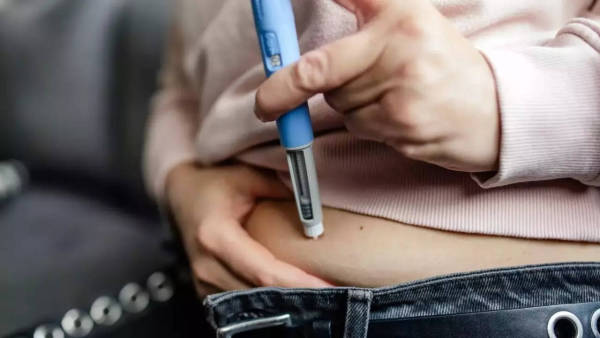'Ozempic sober': Study finds GLP-1 medications might change how our bodies handle alcohol, make us feel 'less drunk'

Ozempic has had it quite paradoxical when it comes to having ‘press’. On one hand, it’s one of the most popular and widely prescribed GLP-1 medications , used to treat the blood sugar of people with type 2 diabetes, but more commonly, as a weight loss drug. On the other hand, it comes with various side effects like nausea, vomiting, diarrhea, stomach pain, and constipation. Furthermore, there are more severe side effects like Ozempic eyes, Ozempic face, Ozempic hand, Ozempic feet, and even Ozempic vulva. While it may seem like the downsides of Ozempic can outweigh its health benefits, new research may convince you otherwise.
A recent pilot study suggests that these GLP-1 medications – including Ozempic – may change how our bodies absorb and experience alcohol, making intoxication slower or dulled. As per the study, this leads to the idea of being “Ozempic sober,” where you have alcohol in your bloodstream but don’t feel it as much.
Intrigued much? Read on to know more.
What does the study say
at Virginia Tech’s Fralin Biomedical Research Institute conducted an exploratory trial with 20 participants (all with obesity) to examine whether GLP-1 receptor agonists like semaglutide (the active ingredient in Ozempic and Wegovy) change how intoxication is experienced.
In the experiment, participants consumed a measured alcoholic beverage intended to raise their blood alcohol concentration (BAC) to around 0.08 %, the legal driving limit in many places. The team tracked breath alcohol levels over time and asked subjects how “drunk” they felt.
Here are the key findings:
The group using GLP-1 drugs showed slower rises in blood alcohol levels compared to those not on the drugs.
Importantly, despite similar or eventual alcohol exposure, GLP-1 users reported feeling less intoxicated — i.e., they rated their subjective “drunk feeling” lower.
The researchers hypothesize that GLP-1 drugs delay how quickly alcohol reaches the brain, dampening its effects on reward circuits.
While these results are preliminary and based on a small sample, they suggest a real shift in how alcohol is processed or experienced in people on GLP-1 therapy.

Other evidence: Semaglutide in alcohol use disorder trials
This pilot study isn’t the only one that’s pointing in the direction of “Ozempic sobriety.” Another relevant piece of evidence, published in the , comes from a more controlled trial using semaglutide in adults with alcohol use disorder. In that 9-week study of 48 participants, those on semaglutide experienced the following:
Reduced cravings for alcohol (weekly craving scores dropped more than placebo).
Fewer drinks on days they drank (though the number of drinking days didn’t change dramatically).
A lower number of heavy drinking days over time compared to the placebo.
All of these findings hint that GLP-1 drugs may help reduce alcohol demand and intake, not purely by reducing appetite but possibly by altering alcohol’s reinforcing effects.
What it matters: Meaning and implications
If GLP-1 drugs can safely reduce alcohol craving or intoxication, they may become tools for treating alcohol use disorder (AUD). Moreover, because the rapid onset of drug effects is often tied to abuse risk, slowing intoxication may reduce risk.
However, the JAMA trial gives cautious optimism.
Observational data suggest that patients on semaglutide or liraglutide had lower rates of alcohol-related hospitalizations. Reducing intoxication might lower the risk of alcohol misuse or accidents in some populations — in theory.
Furthermore, the human trials so far are small and short-term. They cannot establish long-term safety or effect. In addition, the trials did not fully establish that GLP-1 drugs reduce the number of drinking days. Besides, the subjective feeling often takes over objective levels, i.e., users might feel less drunk even if their BAC is high, risking overdrinking or impaired decision-making.
More importantly, these drugs are not approved for treating alcohol problems yet. And combining GLP-1 drugs with alcohol can worsen side effects like nausea, stomach upset, or blood sugar swings. So, it’s better to see GLP-1 drugs as they are now: primarily used to treat diabetes and as obesity medicines, and any alcohol-related effects should not be taken as guaranteed.

